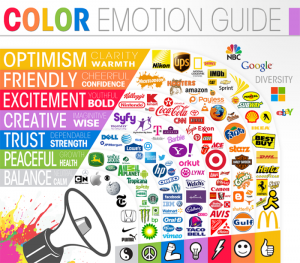When was the last time you ate out and didn’t pay? No credit card no check, certainly no tip. Dinner done, you just walked out the door. We are willing to guess that the answer is probably (hopefully, that is) never.
When was the last time you went to a website with your ad blocker enabled? You got the content you wanted, whether it was an article or video you were searching for, all without saying a simple thank you. You left without paying or even leaving a tip.
Something for nothing?
The debate between website owners, publishers and their supporters vs the creators of ad blocking software and their supporters is multifaceted, to say the least. Ads can be intrusive, annoying and harbor the real potential to slow down page loading time, say the makers of ad blocking software. They are doing the internet a favor by cleaning it up. On the other side, website owners and publishers counter that ads are what keep the lights on and the water running in many businesses today.
Blocking ads is like nailing a “Sorry, we’re closed for good. Too bad you can’t come again” sign on the door for many online content publishers.
End-users users are left squarely in the middle of this debate. With both sides batting their eyelashes, playing the “ethics” card and claiming that their side is clearly the morally superior choice, the end user is left with a conundrum: Sure, ads have the potential to be a drag but is it okay to get access to great content without paying for it whatever form?
Ad-Supported sites strike back
With the prospect of facing a hefty financial hit, some websites are taking action. Recently, some users of Yahoo!’s email client were met with the following message:
“Uh oh… We are unable to display Yahoo Mail. Please disable Ad Blocker to continue using Yahoo Mail”
Currently Yahoo! is the 8th most popular email platform in the United States, trailing Gmail, Apple and even Hotmail email platforms. This move didn’t help spread any goodwill in Yahoo’s direction but it made a statement (even though it was only deployed as part of an a/b test): Ad blocking takes money away from publishers and can put them out of business or make them charge for their content – You sure you want that?
Yahoo! isn’t the only website to come out in support of ads. CNET.com and The Washington Post.com have also been letting users know that in order to access their content, ad blockers must be disabled. In an interview with BuzzFeed, a spokesperson for the Washington Post said :
“Many people already receive our journalism for free online….Without income via… advertising we are unable to deliver the journalism that people coming to our site expect from us”.
Without ad revenue, readers will be forced into one of three options – Paying for content, which most of us will probably try to avoid, losing access to that valuable content or simply taking that great content gratis, without any attention to the fact that someone took the time to create it and put it out there on the web for others to benefit – In this option, the user becomes a freeloader.
The creators of the ad blockers would love to gloss over the fact that although some people benefit, blocking ads is a major blow for others, some of whom many of us use and rely upon every day. In fact, Peace Ad Blocker, the top selling app in the iTunes store for two days back in September 2015, pulled itself off shelves just after 36 hours of being available.
Creator Marco Arment, former CTO of Tumblr, retracted the app, said “it just doesn’t feel good” and that ad blockers, though they can be beneficial “also hurt some, including many who don’t deserve the hit.”
According to a report from Theguardian.com “after witnessing the success of the app Arment concluded that the damage to ad-supported content that would have been affected by the ad blocker was too much”
Creators of ad blockers say they dream of an internet without interruption, without a bombardment of over-the-top propaganda. Well honestly, we all want that. No one likes hordes of ads taking over their devices. There are ways and means around ad blockers, but ads don’t need to be overwhelming. Delivered to the right audience at the right time, ads can even enhance the user experience. Companies like InfoLinks and CodeFuel are working towards this end – to serve highly targeted ad campaigns within the right time frame and context to the right people, without inundating users or disturbing their browsing experience.
“This debate will ultimately force digital advertising to grow up. Thanks to ad blocking, we should start seeing more targeted, data driven advertising in friendlier formats such as Native Advertising. Once we start experiencing a superior UX, publishers can maintain their source of revenue through intelligently placed ads. When we see this happening on a larger scale, the need for ad blockers should fall into decline”. Elad Druckman, Head of Advertising, CodeFuel.
Here is what the internet would look like without ads
The experimental ad blocker named Ethical Ad Blocker, works by entirely blocking ad-supported sites. It fully blocks web pages with a white screen and the message “Sorry. This page is ad-supported. It would be unethical to view this site.”
According to creator Darius Kazemi, the user doesn’t experience ads, but they also don’t leech free content. Using the blocker is a frustrating experience, according to theverge.com, “you can’t really use the internet that well”. This fragmented, stagnated experience should be the natural result of blocking the very entity that powers everything we enjoy about the internet and some suspect that Kazemi’s efforts may actually be a tongue-in-cheek way of painting a picture of how truly sparse the internet would be without ads to make it go ‘round
In the end, this all boils down to one thing: Done right, ads don’t detract from the user experience. They feel natural and subtle, yet make the right impact. Moreover, ads are the lifeblood of the web – without those ads to finance vision and creativity, the web would be a much less dynamic, innovative place.
This article was originally posted on the CodeFuel blog.
Digital & Social Articles on Business 2 Community(73)
Report Post





